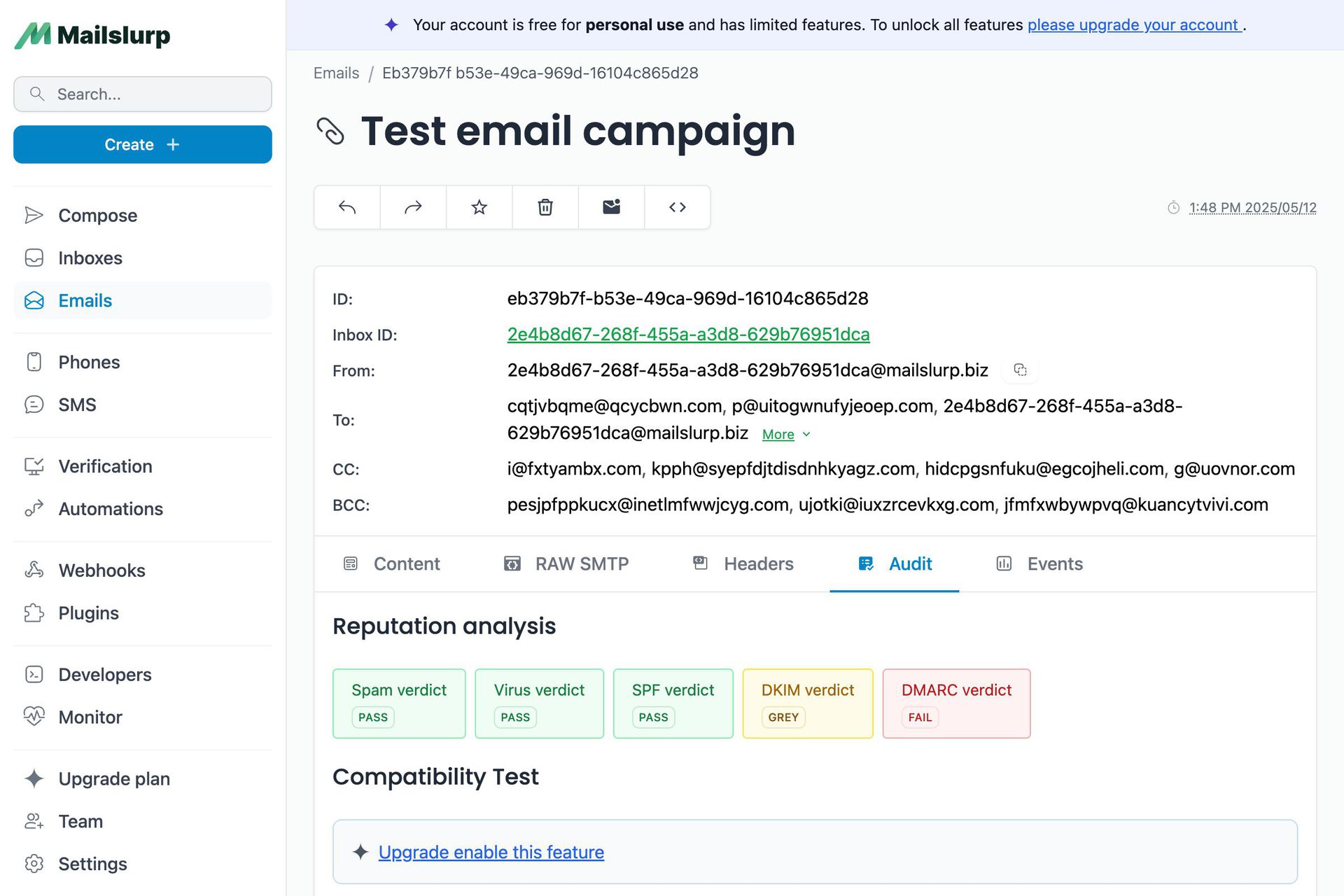Videos
Check out our tutorial video series.
Run a python server on Kubernetes with a single YAML configuration
Ever wanted a simple server up on K8s without building a docker image or publishing to ECR? Well you can do that by mounting a script into a python image and running it. This post shows you how.
Define a single YAML configuration for kubernetes that contains a python server image and the code to run on it. We will use this to create a simple health check service that pings our app repeatedly.
Check out our tutorial video series.
Email and SMS guides for automation and testing.
View github project code for multiple languages.
Latest posts from the MailSlurp team.
Test, build, and automate messaging with a free MailSlurp account.
